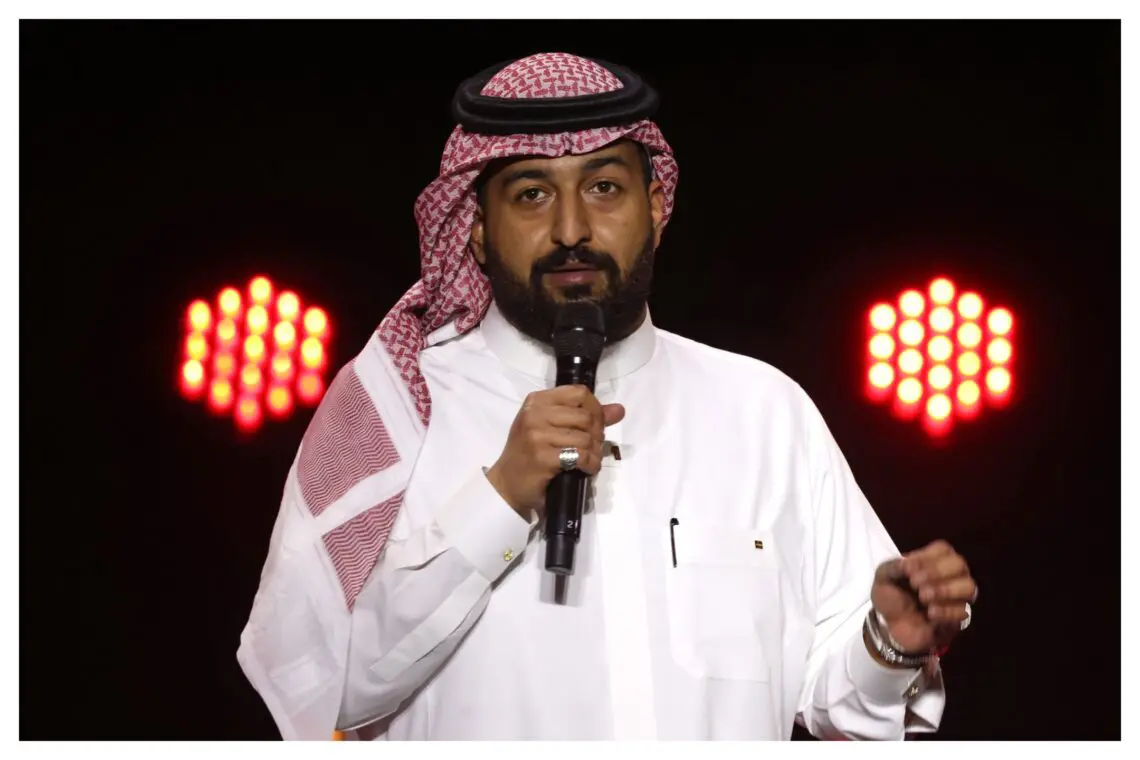Saudi actor and stand-up comedian Ibrahim Al Hajjaj recently became the kingdom’s biggest box office draw as protagonist of groundbreaking comedy “Sattar” in which he played a man whose floundering personal and professional life prompts him to pursue his childhood dream of becoming a freestyle wrestler.
As a followup, Al Hajjaj will next star in “Ambulance,” a screwball comedy directed by British helmer Colin Teague (“Doctor Who,” “Torchwood”) that follows two Saudi paramedics who stumble upon a briefcase containing Saudi Arabian Riyal 2 million ($533,300) in Riyadh, the kingdom’s capital. The film – which is written by Alberto Lopez (“Rupture”) and produced by Al Hajjaj’s House of Comedy and Saudi producer Talal Anazi’s Black Light Operations and former MBC Studios chief Peter Smith in tandem with Muvi Studios – will be the first Arabic-language Imax release. It is set to open in Saudi Arabian cinemas on April 17.
During the recent Red Sea Film Festival in the coastal Saudi city of Jeddah, Al Hajjaj took questions from Variety about “Ambulance” and what the film aims to say about societal changes currently underway in Saudi.
Popular on Variety How did “Ambulance“ originate creatively? Where did the idea come from?
The idea for “Ambulance” came from a desire to explore something unique and different for Saudi cinema. Talal Ananzi came up with the idea and we developed it. Then we talked to Alberto Lopez to help us write it. It’s a story that touches on both the human condition and the complex social dynamics we see around us from the point of view of Saudi paramedics. In a way, it reflects the evolving landscape of Saudi Arabia itself: fast-paced, filled with challenges, yet full of opportunities. We wanted to create something that felt fresh and engaging, and “Ambulance” brings together tension, drama, and humor in a way that hasn’t really been explored in this context before.
After “Sattar” did you feel like: “where do I go from here?”
“Sattar” was a defining moment for me, and I’m grateful for the way audiences responded. It was a breakthrough role, and the feedback I received helped me understand the kind of impact storytelling can have on people. But, like any artist, after a project like that, there’s always a question of “what’s next?” I’ve always wanted to push myself creatively and try something new, and that’s why “Ambulance” felt like the right choice. It’s a different character, a different tone, and a different kind of challenge. I’m always looking for ways to grow, and this film offers that opportunity.
Talk to me about the character you play in the film and your character’s contrast with the other ambulance driver
In “Ambulance” I play a character who is very adventurous. He’s playful, but a bit careless with his job, even though he loves his job. He’s a man who’s all over the place and is somewhat carefree. We get to see the snowball effect of the situations that he ends up in. And throughout all these moments of crisis we see how he changes.
The other ambulance driver, who is portrayed by Mohammed Al-Qahtani, by contrast, is a much more idealistic and career driven paramedic. His character tends to keep things under control, while my character often lets his emotions guide them.
Their contrast creates a fascinating dynamic, as they deal with life-and-death situations together, forcing them both to face their own values and limits. It’s this push-and-pull that drives a lot of the tension in the story.
What, if anything, does “Ambulance” say about changes underway in Saudi today?
“Ambulance” isn’t just a story about two ambulance drivers. It’s a reflection of the broader changes happening in Saudi cinema. The film touches on themes of responsibilities; on the clash between doing what’s right and the consequences that follow. It’s about people working together, facing challenges, and finding ways to adapt and survive in an ever-changing world. In this film we made sure to portray [the city of] Riyadh with all its greatness and its beautiful landscapes. Riyadh’s landscape is rapidly evolving and we wanted to capture the city’s large scale projects and its growing modern cityscape.
What do you consider to be the film’s target audience? Do you think the film’s humor can travel outside Saudi?
I think “Ambulance” will have a broad appeal. While it’s rooted in Saudi culture, its themes of human resilience, humor, and the complexity of relationships can resonate with audiences beyond the kingdom. I think anyone who enjoys a mix of tension and humor, will find something in “Ambulance” to connect with, no matter where they are from.

 Italian
Italian







